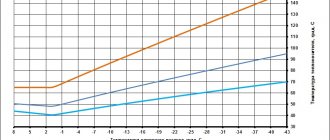Rules for calculating penalties for DDU according to Federal Law-214
Art. 6 and 9 of the Law “On Participation in Equity...” dated December 30, 2004 No. 214 establish two cases when the developer is obliged to pay a penalty under an equity participation agreement (DPA) in construction. The rules for calculating the penalty depend on the basis for its payment.
- The penalty is payable in case of violation of the terms of transfer of the apartment to the shareholder. According to Part 1 of Art. 6 of Federal Law No. 214, the developer must transfer all apartments of one entrance to the shareholders on the day specified in the agreements with them. In case of failure to fulfill this obligation, the developer pays a penalty for each day of delay, calculated according to the formula from Part 2 of Art. 6 Federal Law No. 214.
- If the developer delays the transfer of the apartment for two or more months, or the house was built with significant violations of building codes, then in these situations the shareholder can unilaterally terminate the DDU. Upon termination of the contract, the developer must return the money paid to the shareholder, as well as pay a penalty for the entire period of use. The calculation formula in this case is determined by Part 2 of Art. 9 Federal Law No. 214.
Payment of a penalty for late delivery of a house
The construction contract must include the housing delivery date - this is the date upon which you will be able to move into the apartment after receiving the keys. Delay is considered from the next day specified in the contract. Sometimes cunning developers indicate an approximate period and name the planned date. The court confirms the unacceptability of such clauses and the impossibility of unilaterally postponing the deadline.
The main evidence for paying a penalty in court is the act of acceptance of housing. You should not have it, that is, the act should not be signed, for justified reasons, or it is available (signed), but with a date later than specified in the contract. In pre-trial order, you can send a claim with a calculation of the amounts due for payment. Developers rarely cooperate, the claim is not satisfied, so, most likely, a trial cannot be avoided.
The penalty is paid to your bank account. The statement of claim requires you to provide details so that the developer can transfer the money in a timely manner.
Dmitry Trataevsky Project lawyer
In practice, there are often cases when participants in shared construction win cases related to the developer’s untimely fulfillment of their obligations under the contract, but the developer is in no hurry to transfer the awarded amounts. In this case, shareholders are forced to turn to the bailiff service to protect their interests.
Formula for calculating penalties for DDU
The mathematical formula for calculating the penalty is as follows: The formula by which the penalty is calculated is the same in both cases. However, different data is substituted into it.
For calculations you will need 4 values:
- the amount for which the penalty is calculated;
- the period for which the penalty is calculated;
- the refinancing rate of the Central Bank of the Russian Federation;
- the share of the refinancing rate that is set for each day of delay.
If the shareholder is a citizen, then this is 1/150 of the refinancing rate; if an organization, then 1/300 of the refinancing rate.
How to determine the amount for which a penalty is calculated
In the event that we are talking about violation of the terms of delivery of the apartment, then the penalty, according to Part 2 of Art. 6 Federal Law No. 214, is charged on the contract price, that is, the cost of the apartment. It does not matter whether it is paid in full or in part.
When it comes to termination of the contract, the penalty is calculated on the amount actually paid by the equity holder to the developer. If the money was deposited in parts, then for each part the penalty is calculated separately, since in this situation the number of days of using the funds is different.
For what period should the penalty be calculated?
If the apartment is delivered late, the penalty will be calculated from the day following the day designated in the contract as the day the apartment was handed over. The day the delay period ends is the day the housing is actually transferred to the shareholder.
If we are talking about termination of the contract, then the first day of calculation should be the day the money (part of it) was deposited into the developer’s account, and the last one should be the day it was returned to the shareholder.
What Central Bank rate to use when calculating
The refinancing rate, otherwise called the discount rate (since 2016, the same as the key rate), is the interest rate at which the Central Bank of the Russian Federation provides loans to commercial banks. It is also used to calculate penalties and fines.
The refinancing rate is a fluctuating value that is periodically changed by the Central Bank. For example, during the period from June 22, 2020 to July 27, 2021, the rate was 4.5% per annum.
As for the question of what exact value of the refinancing rate should be used, the answer to it is in Part 2 of Art. 6 and part 2 of Art. 9 Federal Law No. 214. In both cases, the calculation of the penalty is applied to the rate in effect on the day of the actual payment of money by the developer to the shareholder.
If the deadline for delivery of a shared construction project is missed...
Analysis of the development of the institution of shared construction allows us to identify and assess many risks of the parties to contractual relations in this area.
The most vulnerable party in such legal relations is the participant in shared construction (shareholder), whose rights the legislator seeks to protect as much as possible. Thus, in 2021, amendments to the Law on Participation in Shared-Equity Construction were adopted, significantly strengthening control over the activities of the developer. “Softer” attempts to strengthen such control were made much earlier - in particular, in the form of voluntary security of the developer’s obligations with a bank guarantee, the introduction of the institution of voluntary insurance of the developer’s civil liability, etc.
In 2021, the Law on participation in shared construction was supplemented by Art. 23.2 on measures for additional protection of the rights, legitimate interests and property of participants in shared construction. However, already in 2021, not only the title of the article has changed, becoming more imperative (“Protection of the rights of citizens participating in shared-equity construction”), but also its content.
In general, over the 16 years of its existence, the Law on participation in shared-equity construction has undergone 31 revisions.
This attention of the legislator to the sphere of shared construction is due, in my opinion, to a number of circumstances - unfortunately, mostly of a negative nature. It is enough to mention the order of the Ministry of Construction of Russia dated August 12, 2021 No. 560/pr “On approval of the criteria for classifying citizens whose funds were raised for the construction of apartment buildings and whose rights were violated as victims of citizens and the rules for maintaining a register of victims” to assess the scale dishonesty and criminality of the actions of some developers - the term “defrauded shareholders” has remained relevant for at least the last 10 years.
To be fair, I note that sometimes problems arise for the developer due to unforeseen circumstances, which leads to a delay (sometimes significant) in the transfer of the property to the shareholder. In this case, the developer does not go bankrupt and does not abandon his intention to fulfill his obligations, however, the deadline for their fulfillment is violated in any case, which gives the shareholder the legal right to demand payment:
- penalties (part 2 of article 6 of the Law on participation in shared construction);
- a fine in the amount of 50% of the awarded amount of the penalty (clause 6 of article 13 of the Law on the Protection of Consumer Rights);
- compensation for moral damage (Article 151 of the Civil Code of the Russian Federation).
Pre-trial defense strategy
In such a situation, the developer needs to use all his communication skills in order to “restrain” the shareholder (more precisely, a large number of shareholders) from the “temptation” to file a claim - with all the ensuing consequences.
Even if there is no risk of signs of insolvency, the very fact of collecting sums of money with the subsequent initiation of enforcement proceedings is not very pleasant for the developer, since it leads to problems with payment for work and services within the framework of construction activities (for example, under contracts for geodetic, geological and environmental surveys, for the execution of works on internal and external power supply, as well as on the installation of a monolithic reinforced concrete frame, on the organization of a video surveillance system, installation and dismantling of a tower crane, provision of security services, supply of fittings, etc.).
Involving a significant number of suppliers, executors and contractors requires the competent distribution of financial resources, which it is advisable for shareholders to communicate as follows: “Taking into account that the developer distributes funds in accordance with the stages of construction and current needs associated with the construction of the facility, please do not contact to the court with a demand for the collection of penalties and fines, since such collection will in one way or another affect the financial condition of the developer, while the funds in the amount presented in your calculation can be used to finance construction activities directly. In any case, your right to collect liquidated damages and penalties will not be lost if you wish to assert it at a later date. However, as has been repeatedly stated, due to the gradual increase in the number of construction and other construction-related work, procurement and supply of goods, we ask you to postpone consideration of the issue of collecting penalties, since the economic benefit of such an action for you seems doubtful.”
.
At the same time, the developer may offer the shareholder, in order to eliminate the debt, to carry out work on finishing the living space, installing doors, windows, etc. Practice shows that some shareholders will definitely support the developer’s initiative, and reaching a consensus will be possible.
Judicial protection
However, in some cases, these measures may not be enough.
If reconciliation cannot be achieved with any shareholder, it is likely that the developer will find himself a defendant almost simultaneously in multiple parallel claims, which can lead to the sequential recovery of large sums of money and the risk of complete financial insolvency.
In order to focus the court’s attention on this fact, I recommend using the following wording in the response to the statement of claim: “The defendant is a developer in the field of housing construction, and the collection of amounts of penalties similar to the declared amount can significantly worsen the financial position of the defendant as a developer, which will make it impossible to complete the construction of the started objects and violation of the rights of other participants in shared construction. Due to the fact that some participants in shared construction filed corresponding statements of claim with similar demands to the defendant and some of them have already been satisfied by the court, satisfaction of the plaintiff’s stated demands in full in this case may lead to the formation of large-scale accounts payable from the defendant to the participants in shared construction and will increase the risk of failure to fully satisfy the claims of creditors, which, in turn, will lead to bankruptcy proceedings for the developer. Under such conditions, the interests of both the defendant and the plaintiff will be violated, since settlements in bankruptcy can only be completed in the manner established by the legislation on insolvency (bankruptcy), which implies a significant period of time for carrying out all necessary procedures and priority in satisfying claims.”
.
In a trial, one should not limit oneself to the proposed thesis, since it is more auxiliary than main. It is much more important to declare a reduction in penalties:
“By virtue of Art. 333 of the Civil Code of the Russian Federation, the court has the right to reduce the penalty if the penalty payable is clearly disproportionate to the consequences of violation of obligations.
In accordance with the legal position of the Constitutional Court of the Russian Federation, reflected in paragraph 2 of the Determination of December 21, 2000 No. 263-O, the provisions of paragraph 1 of Art. 333 of the Civil Code of the Russian Federation contain the obligation of the court to establish a balance between the measure of responsibility applied to the violator and the assessment of actual, rather than possible, damage. Civil legislation provides for a penalty as a method of ensuring the fulfillment of obligations and a measure of property liability for their non-fulfillment or improper performance, and the right to reduce the amount of the penalty is granted to the court in order to eliminate its obvious disproportion to the consequences of violation of obligations, regardless of whether the penalty is legal or contractual. The penalty by its nature is compensatory in nature, is a way of ensuring the fulfillment of an obligation by the debtor and should not serve as a means of enriching the creditor. At the same time, the defendant believes that the plaintiff has not provided evidence of the occurrence of severe financial, material or domestic consequences caused solely by the defendant’s delay in fulfilling his obligations under the share participation agreement in construction. Considering the above, based on the fact that the declared penalty is disproportionate to the consequences of the defendant’s violation of his obligations, there is no fault in the defendant’s actions, and satisfaction of the stated requirements may lead to an imbalance of the parties’ property interests, the defendant asks the court to reduce the amount of the penalty declared for collection.”
.
The situation with reducing the amount of the fine in favor of the shareholder is not much more complicated. Here you can appeal to the following:
“The defendant asks to reduce the amount recovered under Art. 13 of the Federal Law of February 7, 1992 No. 2300-1 “On the Protection of Consumer Rights” fine. As the Supreme Court of the Russian Federation noted in Ruling No. 8-KG13-12 dated October 29, 2013, this fine is of a civil nature and is essentially a measure of liability provided for by law for improper fulfillment of obligations, that is, it is a form of penalty provided for by law. The amount of the fine may be reduced by the court on the basis of Article 333 of the Civil Code of the Russian Federation. The possibility of reducing the fine under the Law on the Protection of Consumer Rights is provided for in clause 45 of the Resolution of the Plenum of the Supreme Court of the Russian Federation dated June 27, 2013 No. 20 “On the application by courts of legislation on voluntary insurance of citizens’ property”, as well as other judicial practice (rulings of the Moscow City Court dated April 4, 2013 in case No. 11-3607/2013 and the Leningrad Regional Court of February 5, 2013 No. 33-619/2013). Thus, the imposed fine is disproportionate to the consequences of violation of obligations and is subject to reduction under Art. 333 of the Civil Code of the Russian Federation, taking into account the circumstances stated earlier"
.
Considering that most often shareholders are individuals, the statement of claim reflects a demand for recovery of moral damages. Here we can propose the following wording: “The plaintiffs, following the arguments set out in the statement of claim, have not proven the fact of causing moral damage, its size, and also have not proven a cause-and-effect relationship between the actions of the defendant and the occurrence of harm. Based on the text of the statement of claim, it is obvious that the amount of compensation for moral damage was determined speculatively and not based on evidence. Under such circumstances, the Defendant believes that compensation for moral damages should be denied."
.
Of course, the court will not completely refuse to satisfy the stated requirements, but it can significantly reduce the amount collected.
| Case details | Stated (RUB) | Collected (RUB) |
| Case No. 2–1237/2019. Frunzensky District Court of Ivanovo | 179890.81 – penalty 50,000 – moral damage 50% of the awarded amount – fine | 85000 – penalty 5000 – moral damage 10000 – fine |
| Case No. 2-1024/19. Sergiev Posad City Court, Moscow Region | 1018027.60 – penalty 509013.80 – fine 30,000 – moral damage | 500,000 – penalty 60000 – fine 5000 – moral damage |
| Case No. 2-1100/2019. Frunzensky District Court of Ivanovo | 401888.34 – penalty 50,000 – moral damage 50% of the awarded amount – fine | 200,000 – penalty ( 40,000 – moral damage 50000 – fine |
Appearing at a court hearing and defending your position is critically important, since in some cases, in the absence of objections from the defendant, the risk of recovering 90–95% of the amount claimed by the plaintiff increases.
| Court comment | Stated (RUB) | Collected (RUB) |
| “The defendant did not submit a petition to the court to reduce the penalty and fine, did not provide evidence of the disproportion of the penalty to the consequences of violation of the obligation and evidence of the existence of exceptional circumstances that prevented the defendant from fulfilling the obligations properly in accordance with the agreement” (Frunzensky District Court of Ivanovo, case No. 2-1480 /2018) | 280715.84 – penalty 50,000 – moral damage 50% of the awarded amount – fine | 280715.84 – penalty 30,000 – moral damage 155357.92 – fine |
| “The representative of the defendant Perspektiva LLC did not appear at the court hearing; the summons was received by Perspektiva LLC on May 25, 2021. Thus, the defendant was duly notified of the court hearing. No response to the claim or motion was received from the defendant.” (Frunzensky District Court of Ivanovo, case No. 2-1437/2018) | 275647.16 – penalty 40,000 – moral damage 50% of the awarded amount – fine | 275647.16 – penalty 30,000 – moral damage 152823.58 – fine |
Post-trial work strategies
If the defendant competently built a line of defense and, if possible, slowed down the court’s decision (involvement of a third party, incorrect calculation of the penalty by the plaintiff, etc.), the court often reduces the amount of claims by at least half. In this case, the defendant receives additional time (do not forget about filing an appeal in violation of the requirements, leaving it without progress, eliminating deficiencies, accepting the complaint for proceedings, appeal consideration, adoption of a judicial act).
Typically, the developer manages to “protect” himself in this way for two to three months, and in particularly favorable circumstances – for more than six months.
However, the legal work does not end there. To continue reducing the amount of debt, the developer should contact the shareholder with a proposal to enter into an assignment agreement, under which the right to demand fulfillment of the obligation to pay the debt will be transferred to a third party. In this case, the debt is “bought” at a slight discount.
Let's compare the benefits of such a deal for both parties.
So, for the shareholder this is an instant settlement in cash (on the day of the transaction), psychological satisfaction from the final solution to the problem, the absence of a long process of forced execution of a judicial act in the FSSP of Russia. At the same time, the disadvantage is that the amount received will be lower than that determined by the court.
The advantages of the developer lie, in turn, in the absence of enforcement proceedings, enforcement fees, seizures, etc., psychological satisfaction from the final solution to the problem, as well as secondary savings of money due to a reduction in the amount of debt. The downside is that the agreed amount will have to be paid immediately.
Let us pay attention to the provisions of the assignment agreement, which will allow you to correctly “buy out” the right of claim. From a technical and legal point of view, the subject of the contract can be correctly formalized in the following way:
- The Assignor cedes, and the Assignee accepts the right to claim payment of the entire amount of money due for collection as a result of violation ... (by the Developer) of the conditions for the transfer of the property under the Agreement of shared participation in construction from b/d, b/n, FS writs of execution No. b/ n (decision of the Frunzensky District Court of Ivanovo dated b/d in case No. b/n), FS No. b/n (decision of the Frunzensky District Court of Ivanovo dated b/d in case No. b/n).
- The right of claim of the Assignor (clause 1.1) passes to the Assignee in full.
So, the initial amount of the shareholder’s claims has been reduced from 700 thousand rubles. up to 300 thousand rubles, after which he cedes the right of claim to the interested party for 250 thousand rubles. It is not difficult to calculate the developer’s benefit: for 35% of the original debt amount, he “settled” the dispute with the shareholder.
However, did the assignee actually acquire the amount of the debt in the lawsuit?
Let us again analyze clause 1.1 of the agreement. Of course, the assignee acquired the right to claim payment of the amount of debt under the court decision. An attentive lawyer will notice that the assignee, in addition, received the right to demand payment of the entire amount of debt under the agreement.
Why is this important: if the developer cannot transfer the shared construction project immediately after the court decision (and this is what usually happens), the accumulation of a new amount of the penalty is only a matter of time. Consequently, the shareholder can go to court (for example, after a year) and again demand that the developer pay the amount of the debt. It is precisely to eliminate this possibility that the inclusion of the wording “the entire amount of funds” in the text of the agreement is aimed.
Thus, the developer will not only save about 70% of his real money, but will also protect the “future”.
Despite the fact that such proposals are not voiced directly, they are not hidden behind unclear, confusing terms, are not written in an unreadable font, and are not written in a blank space in the document after it is signed. From this point of view, the developer can hardly be accused of “uncleanliness”, since the actions he performs do not contradict the law. For example, a transaction is not a transaction involving deception (Article 179 of the Civil Code) or a transaction with significant misrepresentation (Article 178 of the Civil Code), since in the case where the party is aware of the transfer of “additional” rights, the controversial provisions are simply excluded from the text, while the equity holder does not express a desire not to complete such a transaction at all. That is, there are no signs of invalidity of the transaction in such a case due to the fact that the party does not act under the influence of misconception or deception: in any case, it cedes the rights under the contract (as expected) and receives the promised amount of money (as was provided). Thus, at the time of conclusion of the transaction, no misconception or deception arises.
Moratorium on accrual of penalties under DDU
To minimize the consequences of the restrictions imposed due to coronavirus, the Government of the Russian Federation introduced a moratorium on the accrual of penalties.
According to clause 1 of Decree of the Government of the Russian Federation dated 04/02/2020 No. 423, in the period from April 3, 2021 to January 31, 2021, no penalty is accrued.
Developers were also given a deferment for the period from April 3, 2020 to January 1, 2021 to pay penalties for claims that were presented to them before April 3, 2020.
Types of property sanctions applied to the developer
- Payment of a penalty in double the amount of the rate established by law when using someone else's money. Compensation for losses in the part not covered by penalties.
- Demolition of an unauthorized building.
- Suspension of activities for up to 90 days in case of violation of technical standards and building quality requirements.
- Refund of all funds received under an equity participation agreement in the event of unilateral termination of the agreement at the initiative of the customer due to the discovery of deficiencies in the quality of construction within 20 days from the date of receipt of the request.
- Refund of all amounts paid by the buyer within 10 days from the date of the decision to terminate the contract unilaterally through the court.
If deficiencies in construction or non-compliance of the building construction technology with urban planning regulations and design documentation are identified, the shareholder has the right to choose the following type of liability for the developer:
- elimination of any deficiencies within a reasonable period agreed upon by the parties;
- reducing the cost of the contract by the amount required to correct defects in construction;
- compensation for expenses incurred on the basis of an agreement for repair work or other types of services concluded with a third organization or individuals eliminating deficiencies.
The shareholder has the right to declare termination of the contract with the developer if the following circumstances exist:
- the company does not eliminate deficiencies in the quality of construction work within the agreed upon by the parties or other reasonable period;
- the impossibility of making corrections to the condition of the erected structures without compromising their purpose or appearance, which makes its use for residence or commercial activities unsuitable;
- when the premises are not transferred within 2 months after the announced deadline and the signing of the transfer and acceptance certificate with the participants in shared construction;
- upon termination of the bank's guarantee on the basis of Part 3 of Article 151 of the above law earlier than six months after the transfer of the construction project to the buyers.
Termination of a contract is carried out in court in the following cases:
- if an order has been issued against the developer to suspend or terminate activities, if it is clear that the premises of the house will not be delivered on time;
- when making significant changes to the project declaration;
- with amendments made in relation to the purpose of individual residential and non-residential premises included in the development site.
The procedure for collecting penalties
If the developer fails to fulfill obligations regarding the quality of construction or if there is a delay in delivery of the object, the shareholder files a claim against the company demanding financial compensation. The document specifies a reasonable period for providing a response.
If the construction organization ignores the appeal, then you should file a claim in court. If the company is found guilty by a court decision, the amount of the fine is increased by half - 50% of the amount payable. Based on the conclusion on Art. 333 of the Civil Code of the Russian Federation on reasonableness, courts in most cases reduce the penalty, taking into account the period of delay and the guilt of the developer.
Author of the article
How is a penalty calculated: example
The refinancing rate is available on the official website of the Central Bank of Russia.
In order to calculate the amount of funds to be recovered from the developer, it is necessary to calculate the number of days of delay. The following formula is used for calculation:
Refinancing rate (%)/300* 2 (for citizen shareholders)* amount of compensation (in rubles)* number of days of delay
Practice:
The amount of the shared construction agreement is 3 million rubles. There was a delay of 168 days in the transfer of housing, since the contract indicated the delivery date of the first quarter of 2021, but in fact the premises were transferred in the third quarter.
The refinancing rate today is 8.25%. Accordingly, the amount to be recovered is:
8.25%/300 *2*3000000 8168 = 277,200 rub.





![Mortgage for civil servants and other public sector employees in Sberbank in [year]](https://2440453.ru/wp-content/uploads/ipoteka-dlya-gossluzhashchih-i-drugih-byudzhetnikov-v-sberbanke-v-year4-330x140.jpg)




